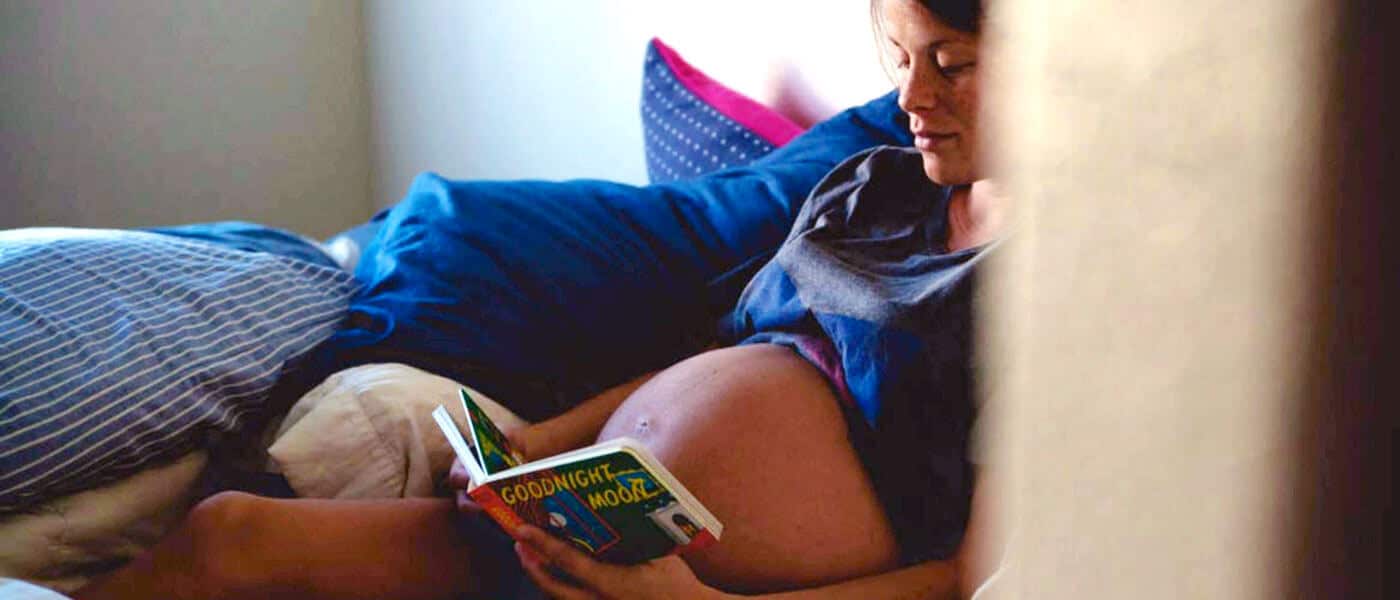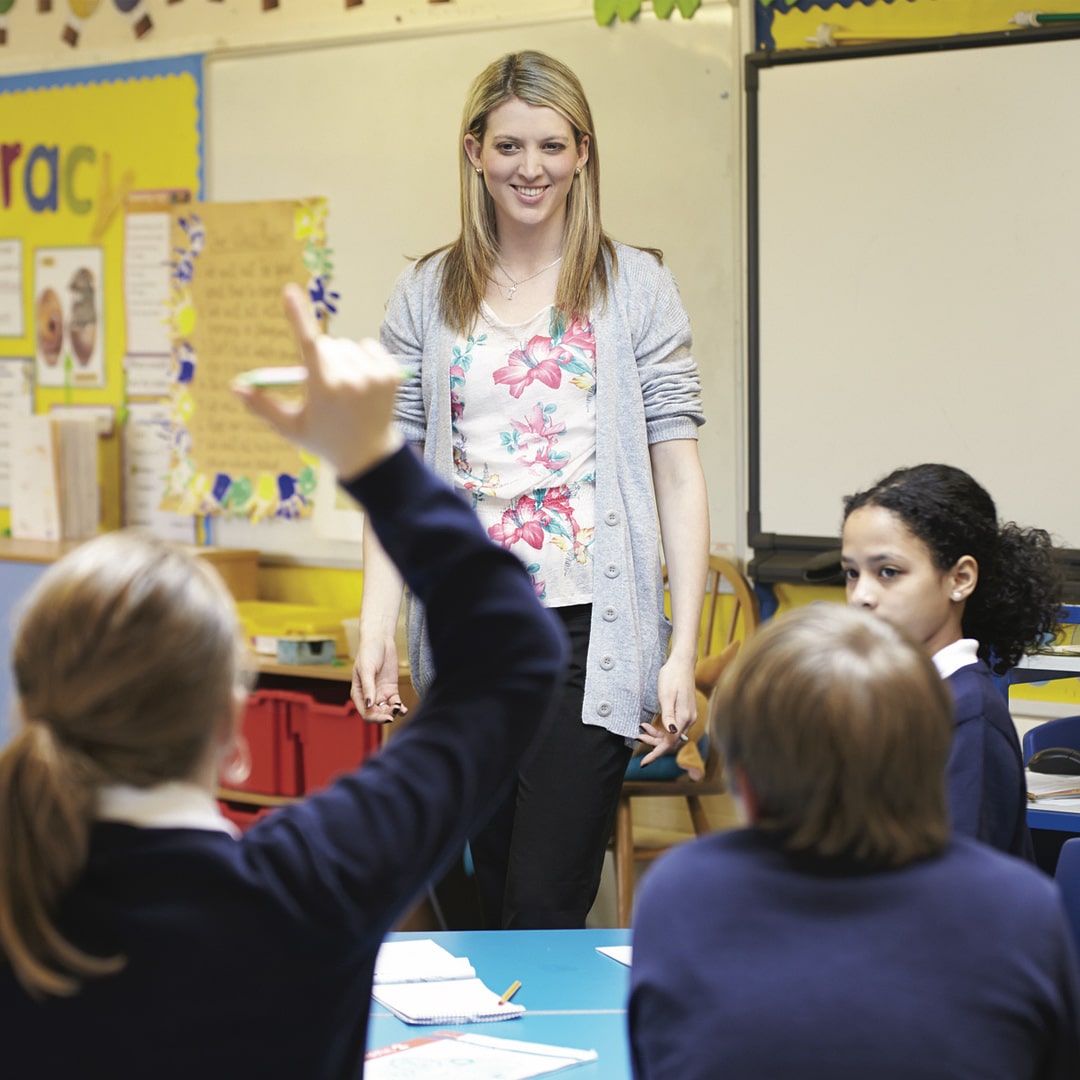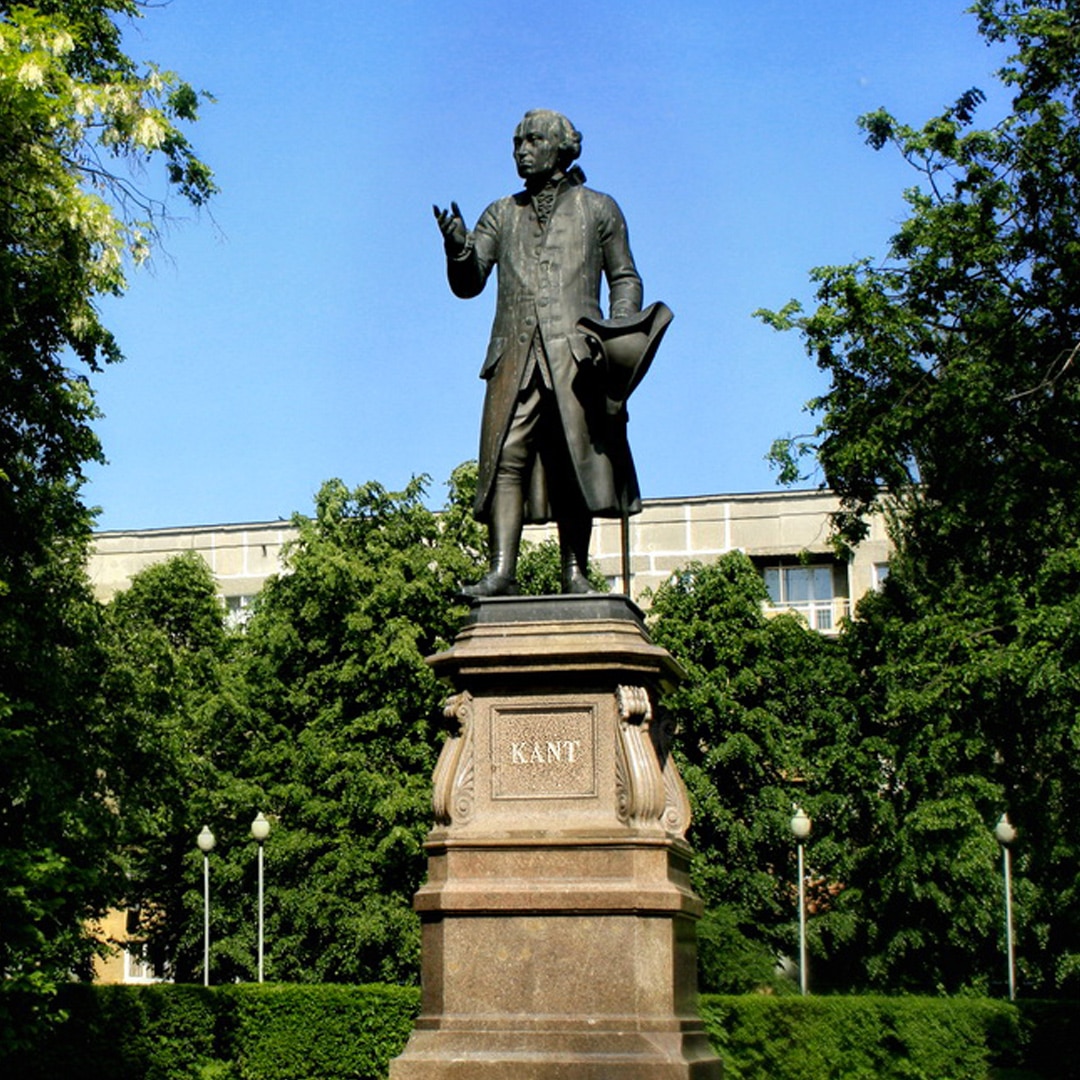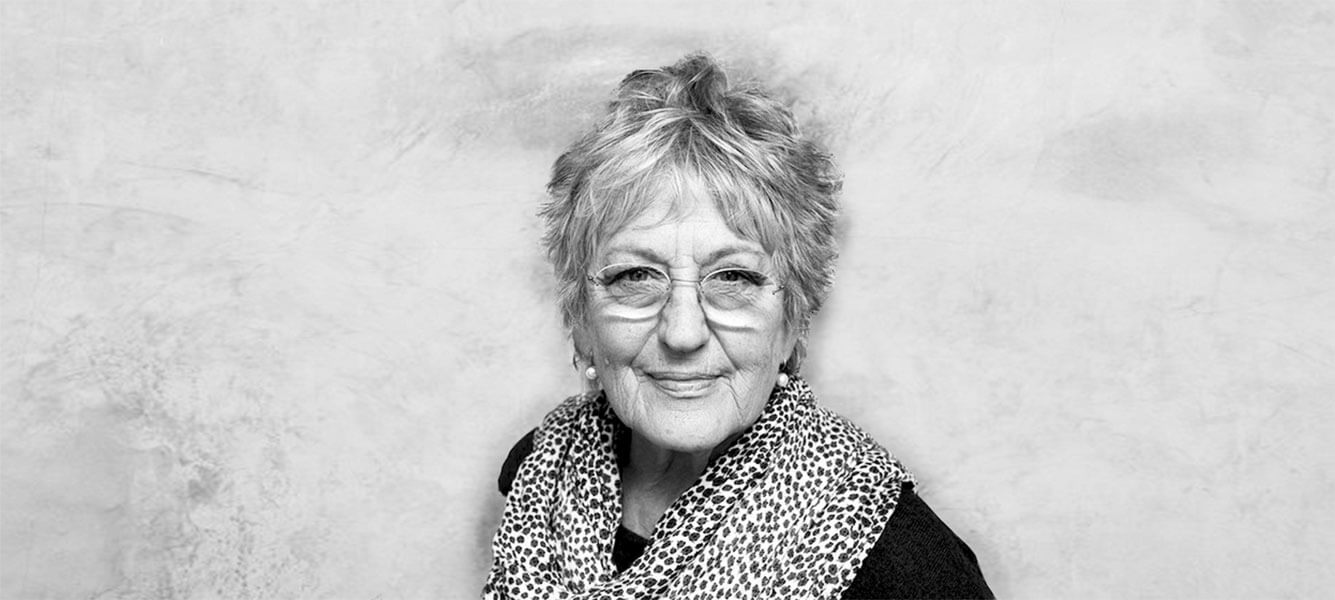A new guide for SME's to connect with purpose

A new guide for SME’s to connect with purpose
Opinion + AnalysisBusiness + LeadershipSociety + Culture
BY The Ethics Centre 27 MAY 2020
Purpose, values and principles are the bedrock of every thriving organisation. With many facing a reset right now, we’ve released a guide to help small to medium sized businesses create a road map for good decisions and robust culture.
In the world of architecture, even the most magnificent building is only as strong as its foundations. The same can be said for organisations. In these times of constant change, a strong ethical culture is essential to achieving superior, long-term performance – driving behaviour, innovation, and every decision from hiring, through to partnerships and customer service.
The foundations for a high-performance culture are made up of three principal components: Purpose, Values and Principles.
Each is necessary. Each plays a specific role. Each complements the other to make a stable foundation for the whole. Together, they make up what we call an Ethics Framework.
PURPOSE (WHY) – An organisation’s reason for being.
Purpose explains the WHY; it is the reason an organisation exists and what it was set up to do or achieve. It’s a defining expression of what your organisation stands for in the world and why it matters.
VALUES (WHAT) – What is good.
Values shape the WHAT; they are the things that an organisation believes are good and worth pursuing. Values guide actions, activities and behaviours within an organisations by identifying what is of merit.
PRINCIPLES (HOW) – What is right.
Principles determine the HOW; helping to guide how an organisation obtains the things it thinks are good. If Values tell an organisation what to pursue, Principles tell them how they should go about getting those things.
The Ethics Centre has spent the past thirty years helping organisations to build and strengthen their ethical foundations. In many cases, we have been able to work directly with organisations. However, not every organisation has either the time or the funds needed to invest in specialist advice.
So, the Centre was pleased to accept a grant from The Australian Securities and Investments Commission’s Community Benefit Fund for the purpose of creating a ‘DIY Guide’ for ethics frameworks – with a special focus on the needs of small to medium-sized businesses. It goes beyond broad theory to offer practical, step-by-step guidance to anyone wanting to define and apply their own Purpose, Values and Principles.
The publication of this guide comes at an especially important time. The current pandemic is testing organisations as never before.
Indeed, COVID-19 is every bit as dangerous as an earthquake – except, in this case, it is the ethical foundations of organisations that will determine whether they stand or fall. In a time of crisis, weak foundations are susceptible to crumble, opening up an organisation to the risk it will make ‘bad’ decisions that will ultimately cost it dearly.
The Ethics Centre believes that prevention is better than cure. Our hope is that the practical guidance offered by this guide will provide owners and managers with the tools they need to build stronger, better businesses.
Ethics in your inbox.
Get the latest inspiration, intelligence, events & more.
By signing up you agree to our privacy policy
You might be interested in…
Explainer
Health + Wellbeing, Society + Culture
Ethics Explainer: Logical Fallacies
Opinion + Analysis
Business + Leadership, Health + Wellbeing
What your email signature says about you
Opinion + Analysis
Business + Leadership
Understanding the nature of conflicts of interest
Opinion + Analysis
Society + Culture, Politics + Human Rights
What happens when the progressive idea of cultural ‘safety’ turns on itself?
BY The Ethics Centre
The Ethics Centre is a not-for-profit organisation developing innovative programs, services and experiences, designed to bring ethics to the centre of professional and personal life.
Ask the ethicist: If Google paid more tax, would it have more media mates?

Ask the ethicist: If Google paid more tax, would it have more media mates?
Opinion + AnalysisBusiness + LeadershipPolitics + Human Rights
BY Simon Longstaff The Ethics Centre 19 MAY 2020
If multinational tech platforms paid more tax on the revenues they made in Australia, would they be in a better moral position to resist government attempts to force them to pay a ‘license fee’ to news media?
This article was first published by Crikey, in their weekly Ask the Ethicist column featuring Dr Simon Longstaff.
There are a couple of ways to look at this question – one as a matter of principle, the other through the lens of prudence. In terms of principle, I think that we should treat separately the issues of tax and the proposed ‘licence fee’. This is because each issue rests on its own distinct ethical foundations.
In the case of tax, all citizens (including corporate citizens) have an obligation to contribute to the cost of funding the public goods provided by the state. For example, a company like Google shares in the benefits of a society that is healthy, well educated, peaceful and effectively governed under the rule of law. All who draw on and benefit from such public goods should contribute to the cost of their generation and maintenance.
Instinctively, most citizens believe that we should each pay our ‘fair share’ of tax. However, that belief is at odds with the fact that our formal obligation is not to pay a fair amount of tax but, instead, to pay only the amount of tax due to be paid as defined by law. Most of us don’t have much choice about how we discharge this formal obligation – as our taxes are automatically remitted to the Australian taxation Office (ATO) by our employers.
However, most corporations, including Google, have considerable latitude when calculating the tax they think due. For example, corporations have a clear choice about the extent to which they move right to the edge of what the law allows: ‘avoiding’ (which is legal) but not ‘evading’ (which is illegal) tax obligations that, to an ordinary person, might seem to be due.
It is this approach to ‘tax planning’ that allows Google to earn revenue, in Australia, of $4.3B yet only pay tax of $100M. Google has a perfectly rational argument about how this can the case – and relies on the fact that it should only pay tax that is legally due.
However, as is the case with other multinational corporations who make similar calculations, Google’s position fails the ‘pub test’ in that it seems to be unfair? Why? Because it seems inherently improbable (and improper) that such massive local revenue should flow offshore to benefit people who contribute nothing to maintain the society that has made possible such a financial windfall.
The issue of Google paying a ‘licence fee’ to the creators of news content is somewhat different. In general, you’d think it a reasonable expectation that a company pay for the inputs it draws on to make a profit. After all, businesses pay for labour inputs (wages), for financial inputs (interest and dividends), for material inputs (cash outlays), etc. So, why not pay for content that is derived from other sources?
Of course, what’s good for the ‘goose’ should be good for the ‘gander’. Companies like News Corporation and Nine should also be asked if they pay for all of the inputs that they draw on to make a profit? For example, do they pay for all published opinion pieces, or for the interviews they conduct, etc.? However, in general, it seems reasonable to expect that Google (and other companies) should pay for what they derive from others.
Of course, Google does not agree – and is especially opposed to Australian proposals because, if adopted, they will set a precedent that other countries are likely to follow. It is this consideration that leads us to look at the issue through the lens of prudence.
Governments (of all political hues) are especially attentive to the demands of the media. What NewsCorp and Co. want, they usually get … unless opposed by the one force that wields even greater influence over the judgement of politicians – the force of public opinion. So, if Google wishes to prevent or limit the levying of a ‘licence fee’, its most potent ally might have been the Australian public.
However, the electorate is unlikely to back the interests of a company that is perceived not to back the interests of the people whose taxes provide the infrastructure on which Google depends for the enrichment of its overseas owners.
This is where principle and prudence align. Google (and other multinational corporations) should pay taxes that amount to a fair contribution to the maintenance of public goods. Had it done so, then Google might have many more friends who might stand beside it in its battle with other powerful corporations like NewsCorp and Nine.
I am not sure if arguments from principle or prudence will really carry much weight. Perhaps the situation needs to be expressed in the language of financial self-interest. Compared to a licence fee (which might be as high as $1B per annum), would a less aggressive approach tax planning have have been a good investment?
You can contact The Ethics Centre about any of the issues discussed in this article. We offer free counselling for individuals via Ethi-call; professional fee-for-service consulting, leadership and development services; and as a non-profit charity we rely heavily on donations to continue our work, which can be made via our website. Thank you.
Ethics in your inbox.
Get the latest inspiration, intelligence, events & more.
By signing up you agree to our privacy policy
You might be interested in…
Opinion + Analysis
Business + Leadership
How cost cutting can come back to bite you
Opinion + Analysis
Politics + Human Rights
Can beggars be choosers?
Opinion + Analysis
Politics + Human Rights
Big Thinker: John Rawls
Opinion + Analysis
Climate + Environment, Politics + Human Rights, Relationships
A burning question about the bushfires
BY Simon Longstaff
Simon Longstaff began his working life on Groote Eylandt in the Northern Territory of Australia. He is proud of his kinship ties to the Anindilyakwa people. After a period studying law in Sydney and teaching in Tasmania, he pursued postgraduate studies as a Member of Magdalene College, Cambridge. In 1991, Simon commenced his work as the first Executive Director of The Ethics Centre. In 2013, he was made an officer of the Order of Australia (AO) for “distinguished service to the community through the promotion of ethical standards in governance and business, to improving corporate responsibility, and to philosophy.” Simon is an Adjunct Professor of the Australian Graduate School of Management at UNSW, a Fellow of CPA Australia, the Royal Society of NSW and the Australian Risk Policy Institute.
BY The Ethics Centre
The Ethics Centre is a not-for-profit organisation developing innovative programs, services and experiences, designed to bring ethics to the centre of professional and personal life.
Are we ready for the world to come?

Are we ready for the world to come?
Opinion + AnalysisBusiness + LeadershipRelationshipsScience + Technology
BY Simon Longstaff The Ethics Centre 15 MAY 2020
We are on the cusp of civilisational change driven by powerful new technologies – most notably in the areas of biotech, robotics and expert AI. The days of mass employment are soon to be over.
While there will always be work for some – and that work is likely to be extremely satisfying – there are whole swathes of the current economy where it will make increasingly little sense to employ humans. Those affected range from miners to pathologists: a cross-section of ‘blue collar’ and ‘white collar’ workers, alike in their experience of displacement.
Some people think this is a far too pessimistic view of the future. They point to a long history of technological innovation that has always led to the creation of new and better jobs – albeit after a period of adjustment.
This time, I believe, will be different. In the past, machines only ever improved as a consequence of human innovation. Not so today. Machines are now able to acquire new skills at a rate that is far faster than any human being. They are developing the capacity for self-monitoring, self-repair and self-improvement. As such, they have a latent ability to expand their reach into new niches.
This doesn’t have to be a bad thing. Working twenty-four hours a day, seven days a week in environments that no human being could tolerate, machines may liberate the latent dreams of humanity to be free from drudgery, exploitation and danger.
However, society’s ability to harvest the benefits of these new technologies crucially depends on planning and managing a just and orderly transition. In particular, we need to ensure that the benefits and burdens of innovation are equitably distributed. Otherwise, all of the benefits of technological innovation could be lost to the complaints of those who feel marginalised or abandoned. On that, history offers some chilling lessons for those willing to learn – especially when those displaced include representatives of the middle class.
COVID-19 has given us a taste of what an unjust and disorderly transition could look like. In the earliest days of the ‘lockdown’ – before governments began to put in place stabilising policy settings such as the JobKeeper payment – we all witnessed the burgeoning lines of the unemployed and wondered if we might be next.
As the immediate crisis begins to ease, Australian governments have begun to think about how to get things back to normal. Their rhetoric focuses on a ‘business-led’ return to prosperity in which everyone returns to work and economic growth funds the repayment of debts accumulated during the the pandemic.
Attempting to recreate the past is a missed opportunity at best, and an act of folly at worst. After all, why recreate the settings of the past if a radically different future is just a few years away?
In these circumstances, let’s use the disruption caused by COVID-19 to spur deeper reflection, to reorganise our society for a future very different from the pre-pandemic past. Let’s learn from earlier societies in which meaning and identity were not linked to having a job.
What kind of social, political and economic arrangements will we need to manage in a world where basic goods and services are provided by machines? Is it time to consider introducing a Universal Basic Income (UBI) for all citizens? If so, how would this be paid for?
If taxes cannot be derived from the wages of employees, where will they be found? Should governments tax the means of production? Should they require business to pay for its use of the social and natural capital (the commons) that they consume in generating private profits?
These are just a few of the most obvious questions we need to explore. I do not propose to try to answer them here, but rather, prompt a deeper and wider debate than might otherwise occur.
Old certainties are being replaced with new possibilities. This is to be welcomed. However, I think that we are only contemplating the ‘tip’ of the policy iceberg when it comes to our future. COVID-19 has given us a glimpse of the world to come. Let’s not look away.
The Ethics Centre is a world leader in assessing cultural health and building the leadership capability to make good ethical decisions in complexity. To arrange a confidential conversation contact the team at consulting@ethics.org.au. Visit our consulting page to learn more.
Ethics in your inbox.
Get the latest inspiration, intelligence, events & more.
By signing up you agree to our privacy policy
You might be interested in…
Opinion + Analysis
Relationships
What we owe our friends
Opinion + Analysis
Science + Technology
The cost of curiosity: On the ethics of innovation
Opinion + Analysis
Relationships
Narcissists aren’t born, they’re made
Opinion + Analysis
Relationships
The historical struggle at the heart of Hanukkah
BY Simon Longstaff
Simon Longstaff began his working life on Groote Eylandt in the Northern Territory of Australia. He is proud of his kinship ties to the Anindilyakwa people. After a period studying law in Sydney and teaching in Tasmania, he pursued postgraduate studies as a Member of Magdalene College, Cambridge. In 1991, Simon commenced his work as the first Executive Director of The Ethics Centre. In 2013, he was made an officer of the Order of Australia (AO) for “distinguished service to the community through the promotion of ethical standards in governance and business, to improving corporate responsibility, and to philosophy.” Simon is an Adjunct Professor of the Australian Graduate School of Management at UNSW, a Fellow of CPA Australia, the Royal Society of NSW and the Australian Risk Policy Institute.
BY The Ethics Centre
The Ethics Centre is a not-for-profit organisation developing innovative programs, services and experiences, designed to bring ethics to the centre of professional and personal life.
Ask the ethicist: Is it ok to tell a lie if the recipient is complicit?

Ask the ethicist: Is it ok to tell a lie if the recipient is complicit?
Opinion + AnalysisBusiness + Leadership
BY Simon Longstaff The Ethics Centre 13 MAY 2020
My employer sent me a questionnaire designed to test if my home working environment meets basic standards. If I’d answered truthfully I would have ‘failed the test’. But what’s the point in telling the truth when I have to work at home in any case? Was it wrong to lie on the form?
This article was first published by Crikey, in their weekly Ask the Ethicist column featuring Dr Simon Longstaff.
Although this ethical issue seems to fall on you – as the person receiving the survey – it actually starts with your employer’s decision to request this information in the first place. I assume they did so in order to meet their legal obligations … and perhaps conditions set by their insurer, etc.
However, the process they activated was not designed to cope with circumstances like the COVID-19 pandemic. Instead, the occupational health and safety checks they are trying to use were developed for a time when working from home was the exception – rather than the rule.
Back then, it made excellent sense to check that those opting to work from home could do so with good lighting, an ergonomic chair … and all the other requirements one would reasonably expect to find in a safe, modern office environment.
However, for the time being, millions of people have no choice but to plonk themselves down a couch or at a kitchen table or … wherever … to work as best they can.
So, let’s imagine that your home environment is not especially suited for work? Suppose you pass on this information to your employer. Do we really think that they would rush over with a well-designed desk, chair, light, etc.?
Perhaps some might do so … but in the current circumstances I doubt that this would be the response. Even if one sets aside questions of cost – are there enough new chairs, desks, computers, etc. to make good the likely deficiencies in the working arrangements of a large percentage of the active workforce? I suspect not.
Given this, I imagine that many people have decided to collude (with their employer) in a ‘white lie’. Both sides know (but will not say) that to offer an honest response would probably be an exercise in futility.
With this in mind, ‘form’ triumphs over ‘substance’ – with employees signing off on a declaration that they know not to be strictly true – but that is practically required all the same.
Now, I know that thus might seem to be a fairly minor form of deception – something to be excused because deemed to be ‘necessary’. However, I reckon that it is never a good thing to lie – and that those who plead ‘necessity’ must first do everything they can to prevent this kind of dilemma from arising in the first place.
This is because even occasional acts of dishonesty can start to warp a culture because they suggest that core values and principles can be abandoned whenever the going gets tough.
In summary: I think it was wrong to lie on the form (even if understandable). However, it would have been far better – for all – if your employer had not put you in this invidious position in the first place.
You can contact The Ethics Centre about any of the issues discussed in this article. We offer free counselling for individuals via Ethi-call; professional fee-for-service consulting, leadership and development services; and as a non-profit charity we rely heavily on donations to continue our work, which can be made via our website. Thank you.
Ethics in your inbox.
Get the latest inspiration, intelligence, events & more.
By signing up you agree to our privacy policy
You might be interested in…
Opinion + Analysis
Business + Leadership, Politics + Human Rights
Who’s afraid of the strongman?
Opinion + Analysis
Business + Leadership
‘Woke’ companies: Do they really mean what they say?
Opinion + Analysis
Business + Leadership
Perils of an unforgiving workplace
Opinion + Analysis
Business + Leadership
The value of principle over prescription
BY Simon Longstaff
Simon Longstaff began his working life on Groote Eylandt in the Northern Territory of Australia. He is proud of his kinship ties to the Anindilyakwa people. After a period studying law in Sydney and teaching in Tasmania, he pursued postgraduate studies as a Member of Magdalene College, Cambridge. In 1991, Simon commenced his work as the first Executive Director of The Ethics Centre. In 2013, he was made an officer of the Order of Australia (AO) for “distinguished service to the community through the promotion of ethical standards in governance and business, to improving corporate responsibility, and to philosophy.” Simon is an Adjunct Professor of the Australian Graduate School of Management at UNSW, a Fellow of CPA Australia, the Royal Society of NSW and the Australian Risk Policy Institute.
BY The Ethics Centre
The Ethics Centre is a not-for-profit organisation developing innovative programs, services and experiences, designed to bring ethics to the centre of professional and personal life.
Philosophically thinking through COVID-19

Philosophically thinking through COVID-19
Opinion + AnalysisHealth + WellbeingRelationshipsScience + Technology
BY Bryan Mukandi The Ethics Centre 9 MAY 2020
In their recent article, ‘Who gets the ventilator in the coronavirus pandemic?’, bioethicists Julian Savulescu and Dominic Wilkinson note that we may soon be faced with a situation in which the demand for medical resources is greater than what is available.
At that point, decisions about who gets what medical resources ought to be just, they argue. The trouble with the article however, is that the two men seem to approach our present crisis as though it were just that, a present tense phenomenon. They view COVID-19 not as a something that has emerged over time as a result of our social configuration and political choices, but as something that appeared out of nowhere, an atemporal phenomenon.
Treating the pandemic as atemporal means that the two scholars only focus on the fact of this individual here and that one over there, suffering in this moment, from the same condition. They fail to ask how how this person came to be prone to the virus, or what resources that person has had at their disposal, let alone the socio-political and historical circumstances by which those resources were acquired. Karla Holloway, Professor of English and Professor of Law, makes the point that stripping away the textual details around our two patients simplifies the decision making process, but the price paid for that efficiency might be justice.
We know that there are systematic discrepancies in medical outcomes for marginalised groups at the best of times.We know that structural inequalities inform discrepancies around the degree to which people can practice social distancing and reduce the risk of infection. We know that those most likely to be most severely affected in the wake of the pandemic are those belonging to already marginalised communities. As public health medicine specialist, Papaarangi Reid, put it in a recent interview:
“We’ve got layers that we should be worried about. We should be worried about people who have difficulty accessing services … people who are stigmatised … While we are very worried about our elderly, we’re also worried about our precariat: those who are homeless; we’re worried about those who are impoverished; those who are the working poor; we’re worried about those who are in institutions, in prisons.”
Every time Reid says that we ought to worry about this group or that, I am confronted by Arendt’s take on just how difficult it is to think in that manner. I’m currently teaching a Clinical Ethics course for second year medical students, one of whose central pillars is Hannah Arendt’s understanding of thought. Standing on the other side of the catastrophe that was the second world war, she warned that thinking is incredibly difficult; so much so it demands that one stop, and it can be paralysing.
Arendt pointed out those algorithmic processes on the basis of which we usually navigate day-to-day life: clichés, conventional wisdom, the norms or ‘facts’ that seem so self-evident, we take them for granted. She argued that those are merely aids, prostheses if you like, which stand in the place of thinking – that labour of conceptually wading through a situation, or painstakingly kneading a problem. The trouble is, in times of emergency, where there is panic and a need for quick action, we are more likely to revert to our algorithms, and so reap the results of our un-interrogated and unresolved lapses and failures.
Australia today is a case in point. “The thing that I’m counting on, more than anything else,” noted Prime Minister Scott Morrison recently, “Is that Australians be Australian.” He went on to reiterate at the same press conference, “So long as Australians keep being Australians, we’ll get through this together.”
I’m almost sympathetic to this position. A looming disaster threatens the status quo, so the head of that status quo attempts to reassure the public of the durability of the prevailing order. What goes unexamined in that reflex, however, is the nature of the order. The prime minister did not stop to think what ‘Australia’ and ‘Australianness’ mean in more ordinary times.
Nor did he stop to consider recent protests by First Nations peoples, environmental activists, refugee and asylum seeker advocates and a raft of groups concerned about those harmed in the course of ‘Australians being Australian’. Instead, with the imperative to act decisively as his alibi, he propagated the assumption that whatever ‘Australia’ means, it ought to be maintained and protected. But what if that is merely the result of a failure to think adequately in this moment?
In his excellent article, calling on the nation to learn from past epidemics, Yuggera/Warangu ophthalmologist Kris Rallah-Baker, writes: ‘This is just the beginning of the crisis and we need to get through this together; Covid-19 has no regard for colour or creed’. In one sense, he seems to arrive at a position that is as atemporal as that of Savulescu and Wilkinson, with a similar stripping away of particularity (colour and creed). It’s an interesting position to come to given the continuity between post-invasion smallpox and COVID-19 that his previous paragraphs illustrate.
Read another way, I wonder if Rallah-Baker is provoking us; challenging us to think. What if this crisis is not the beginning, but the result of a longstanding socioeconomic, political and cultural disposition towards First Nations peoples, marginalised groups more broadly, and the prevailing approach to social organisation?
Could it then also be the case that the effect of the presence of novel coronavirus in the community is in fact predicated, to some degree, on social categories such as race and creed? Might a just approach to addressing the crisis, even in the hospital, therefore need to grapple with temporal and social questions?
There will be many for whom the days and weeks ahead will rightly be preoccupied with the practical tasks before them: driving trucks; stacking supermarket shelves; manufacturing protective gear; mopping and disinfecting surfaces; tending to the sick; ensuring the continuity of government services; and so forth. For the rest of us, there is an imperative to think. We ought to think deeply about how we got here and where we might go after this.
Perhaps then, as health humanities researchers Chelsea Bond and David Singh recently noted in the Medical Journal of Australia:
“we might also come to realise the limitations of drawing too heavily upon a medical response to what is effectively a political problem, enabling us to extend our strategies beyond affordable prescriptions for remedying individual illnesses to include remedying the power imbalances that cause the health inequalities we are so intent on describing.”
You can contact The Ethics Centre about any of the issues discussed in this article. We offer free counselling for individuals via Ethi-call; professional fee-for-service consulting, leadership and development services; and as a non-profit charity we rely heavily on donations to continue our work, which can be made via our website. Thank you.
Ethics in your inbox.
Get the latest inspiration, intelligence, events & more.
By signing up you agree to our privacy policy
You might be interested in…
Explainer
Relationships
Ethics Explainer: Authenticity
Opinion + Analysis
Relationships
Ask an ethicist: How do I get through Christmas without arguing with my family about politics?
Opinion + Analysis
Business + Leadership, Relationships
It’s time to take citizenship seriously again
Opinion + Analysis
Relationships
We need to talk about ageism
BY Bryan Mukandi
is an academic philosopher with a medical background. He is currently an ARC DECRA Research Fellow working on Seeing the Black Child (DE210101089).
BY The Ethics Centre
The Ethics Centre is a not-for-profit organisation developing innovative programs, services and experiences, designed to bring ethics to the centre of professional and personal life.
Moving on from the pandemic means letting go

Moving on from the pandemic means letting go
Opinion + AnalysisBusiness + LeadershipHealth + WellbeingRelationships
BY Cris Parker The Ethics Centre 4 MAY 2020
Emerging from the turbulence of COVID-19, we have the opportunity to escape the hold of our past and use moral imagination to explore a better future.
After months of living through disruption, old work habits and perceptions may no longer fit the ‘new normal’, says Michael Baur, Associate Professor in the Philosophy Department at Fordham University and an Adjunct Professor at Fordham Law School.
“There’s a very positive side to this, because it makes us realise that the seemingly obvious, natural way of operating is not so obvious anymore.” says Baur.
“It does afford us the ability to think a little bit more carefully about what we’re doing.”
A simple example may be that, after mastering virtual meetings, we realise that the regular face-to-face interstate meetings we thought to be essential are not, in fact, a necessary part of doing business. Instead of asking ‘can we do this online?’ we might now ask, ‘should we do this online, is there a good reason to do it in person?’
“It’s liberating, potentially, to be able to be thrown back and see that the seemingly natural is really not so natural and obvious after all,” says Baur.
Aspects of life previously unquestioned, such as our choices of where to live, send our kids to school or even the jobs we do, may be cast in a different light.
Speaking with Bob McCarthy, an Irish colleague, he spoke of the experience of the ‘Celtic Tigers’ during ten-year-plus period of economic growth prior to 2008. “Ireland had never experienced anything like it and our economy became the envy of the world. Of course, we lived in accordance with our new wealth and fame – two houses each, BMWs, ski holidays and buying chalets in Morzine”, says McCarthy.
Many rationalised their good fortune – ‘we’ve had it tough for so long we deserve a little luxury.’ So, when the Global Financial Crisis (GFC) crash came, it came hard. There was a 60% average fall in property prices, high unemployment, many family tragedies, house repossessions and years of debt to repay.
Bob said that the experience of crisis changed attitudes and behaviours, “Now, those of us who have been through this look at life, business, money, relationships, values, ethics through a different filter than before”.
He describes the experience of having benefitted from the pain. What had once seemed important during the times of excess are no longer important. What didn’t matter then, matters to him now. “Don’t get me wrong – not everything has changed. But for most the filter we use has changed”.
Baur says that, with the experience of COVID-19, we now have a similar opportunity to reset our aspirations, “When we were riding easy, just several weeks ago, we were in a state of deception.” He recognises that the pandemic has caused major economic shocks – perhaps even more severe than those caused by the GFC, “And now we can regroup. That seems to me a more positive, healthy way of thinking of it – that all of this wealth and expectation was not really ours to have to begin with.”
Bigger is not always better
The aftermath of the pandemic presents a good time to reassess our attitude to growth. The fact that almost all sectors of business have suffered means that there is a collective opportunity to slow down and reassess whether the purpose of business is to make more money for money’s sake, or to provide for human need.
Business is now attending to issues that were always there to be addressed – but remained largely ‘unseen’. By presenting itself as a ‘common enemy’, COVID-19 has caused us all to look up at the same time and respond to a suite of collective problems.
In many cases, our response has been an expression of human goodness, compassion and altruism. ‘Them’ has become ‘us’.
For example, Accor hotels, is opening up unused accommodation to support vulnerable people. Simon McGrath, Accor’s CEO, says, “Our doors are open,” said Accor’s McGrath “We have accommodation assets that can help people in times of need, and while the industry’s been devastated commercially, it doesn’t mean we can’t help.”
In a similar vein, UBER has partnered with the Women’s Services Network to provide 3,000 free rides to support those needing safe travel to or from shelters and domestic violence support services.
Australia was relatively unscathed by the GFC of 2008 and did not experience the large economic downturn felt elsewhere on the globe. Australia has also managed to flatten the curve and “none have been more successful than Australia and New Zealand at containing the coronavirus,” said Jonathan Rothwell, Gallup’s principal economist.
This is thanks to our strong public health system and our comprehensive testing regime, to the tracing of carriers and our strict self-isolation and physical distancing laws. We were also lucky that our geographic isolation bought us an extra 10 precious days to prepare.
However, Australia has not and will not escape the economic consequences of the pandemic – and our response to the threat it poses. So, how will we shape up when the challenge is an economic recession as opposed to a medical emergency? Will the good will and sense of common endeavour persist during the next phase of struggle? More interestingly still, will the sense of mutual obligation survive a return to posterity? Or will we resume our ‘old ways’?
Baur says an argument could be made that business and society in general did not make the most of the lessons to be learned from the GFC, more than a decade ago. Ireland’s Bob McCarthy, is of the same opinion, “We may be having an opportunity that would have been a lost opportunity from that time,” he says.
“What might be seen as a loss of opportunity, a loss of growth, in one limited respect, is really a darn good thing for everybody,” Baur says.
Echoing the same sentiment, Mike Bennetts CEO of Z Energy in New Zealand told audiences at the Trans – Tasman Business Circle that this virus has accelerated us into the future by 5 years, so “let’s make the most of it”. Our instinct is to seek comfort and confidence in the known which will mean going back to the way it was.
The challenge, now, is not only to create a new future but a better future. For that to happen we need to unleash a better version of ourselves.
You can contact The Ethics Centre about any of the issues discussed in this article. We offer free counselling for individuals via Ethi-call; professional fee-for-service consulting, leadership and development services; and as a non-profit charity we rely heavily on donations to continue our work, which can be made via our website. Thank you.
Ethics in your inbox.
Get the latest inspiration, intelligence, events & more.
By signing up you agree to our privacy policy
You might be interested in…
Opinion + Analysis
Business + Leadership
How can Financial Advisers rebuild trust?
Opinion + Analysis
Business + Leadership
Businesses can’t afford not to be good
Opinion + Analysis
Business + Leadership, Politics + Human Rights
Australia is no longer a human rights leader
Opinion + Analysis
Health + Wellbeing, Politics + Human Rights
Don’t throw the birth plan out with the birth water!
BY Cris Parker
Cris Parker is the former Head of The Ethics Alliance and a Director of the Banking and Finance Oath at The Ethics Centre.
BY The Ethics Centre
The Ethics Centre is a not-for-profit organisation developing innovative programs, services and experiences, designed to bring ethics to the centre of professional and personal life.
Leading ethically in a crisis

Leading ethically in a crisis
Opinion + AnalysisBusiness + Leadership
BY Simon Longstaff The Ethics Centre 4 MAY 2020
It is difficult to excel in the art of leadership at any time – let alone in the midst of a crisis. Yet, this is precisely when good leadership is at a premium.
Right now, we must ask: what is ‘good’ leadership and how should leaders respond to the demands placed upon them during periods of extraordinary ethical complexity?
In attempting to answer these questions, I am thrown back on my own experience of leadership – including at present. In that sense, this not a detached, objective account. Rather, it is a reflection on (and of) lived experience.
The first obligation of a leader is to see, and sense, the whole picture. This means being alive to the undercurrents of feeling and emotion flowing through the organisation, while simultaneously keeping a clear view of the evolving strategic landscape and being ‘present’ in the moment.
The good leader needs to ensure that no one affected by the crisis is either overlooked or marginalised. This is harder than it seems. When driven by the ‘lash of necessity’, it’s all too easy to favour some people because of their utility, while dismissing others as ‘dead weight’.
I have been struck by the number of times that people have said the current emergency requires them, albeit reluctantly, to be cold-hearted, brutal or even cruel. I realise that such comments do not reflect their personal inclination – but instead reflect their response to evident necessity. However, I think that ethical leaders have an obligation to challenge that tendency – not least by naming it for what it is.
This is not to say that issues of relative utility are unimportant. Nor is it the case that one should avoid difficult decisions – such as those that might lead to job losses. Rather, the leader’s job is to ensure that such decisions are not made on the basis of cold, dispassionate calculation. Instead, the leader has an obligation to ensure that the ethical weight of each decision is felt and the heft of the burden that falls from each decision is known.
The second requirement of ethical leaders is that they resist demands for a certainty they cannot or should not provide. This is easier said than done. There are some contexts in which the suspense of ‘not knowing’ can be thrilling; however, for most people operating under stress, confronting ‘the unknown’ reinforces a sense of powerlessness and is deeply unsettling.
Even so, ethical leaders should resist the temptation to offer people false certainty, no matter how much that might be desired. Instead, a good leader should be resolutely trustworthy by only claiming as ‘certain knowledge’ what is genuinely known. Otherwise, a leader’s integrity can be undermined by something as simple as a gap between what was asserted as fact and what is subsequently revealed to be true.
None of this is to suggest that people be denied glimmers of hope based on one’s best estimate. It is merely to counsel caution – especially when a delay can open up new possibilities. The recent and unexpected emergence of the Federal Government’s JobKeeper scheme is a good example.
Leading during a crisis requires an ability to foresee a future, preferred state and then ‘backcast’ to the present when making decisions. As noted above, in the course of a crisis, many decisions will be made under the ‘lash of necessity’.
In these circumstances, people will be driven to accept the harshest treatment as a ‘necessary evil’. However, a time will come when the crisis is relegated to the past and those who remain in an organisation will want to know what justified the sacrifice – especially that made by those who fell along the way.
Telling people that it was ‘necessary’ will not be enough. Instead, those who remain will require a positive justification that goes beyond ‘mere survival’. It is in the light of that positive justification that all of the preceding decisions need to be evaluated. So, leaders need to ask themselves, ‘is today’s decision going to foreclose on the future we hope to create’. In particular, will my present choice make my preferred future impossible? Will it delegitimise my future leadership?
Finally, leaders need to release themselves from the unrealistic expectation of ‘ethical perfection’. This is not to say that one should be careless in decision making. Rather, it is to recognise a fundamental truth of philosophy: that some ethical dilemmas are so perfectly balanced as to be, in principle, undecidable.
Yet, we must decide. The only reasonable standard to apply in such cases is that we are sincere in our judgement and competent in our capacity to make ethical decisions – a skill that can be learned and supported.
There are particular ethical challenges to be faced by leaders during times such as these. Critical decisions may have to be made alone. Not everything that could be said should be said. There are some options that need to be considered but not voiced – as they would cause unnecessary worry – only to remain dormant.
There are ‘gordian knots’ that may need to be cut rather than carefully unravelled over a period of time that is simply not available. There is the fact that the weaknesses in oneself (and others) will be revealed under pressure – and that unpleasant truths will need to be acknowledged and endured.
At times such as these, the things that sustain good leaders are an unshakeable sense of purpose and a solid core of personal integrity. One might protect others from the harshest of possibilities for as long as possible – but never oneself.
The Ethics Centre is a world leader in assessing cultural health and building the leadership capability to make good ethical decisions in complexity. To arrange a confidential conversation contact the team at consulting@ethics.org.au. Visit our consulting page to learn more.
Ethics in your inbox.
Get the latest inspiration, intelligence, events & more.
By signing up you agree to our privacy policy
You might be interested in…
Opinion + Analysis
Business + Leadership, Politics + Human Rights
Australia’s fiscal debt will cost Gen Z’s future
Opinion + Analysis
Business + Leadership, Politics + Human Rights, Society + Culture
Drawing a line on corruption: Operation eclipse submission
Opinion + Analysis
Business + Leadership, Politics + Human Rights
A foot in the door: The ethics of internships
Opinion + Analysis
Business + Leadership, Health + Wellbeing
Why ethical leadership needs to be practiced before a crisis
BY Simon Longstaff
Simon Longstaff began his working life on Groote Eylandt in the Northern Territory of Australia. He is proud of his kinship ties to the Anindilyakwa people. After a period studying law in Sydney and teaching in Tasmania, he pursued postgraduate studies as a Member of Magdalene College, Cambridge. In 1991, Simon commenced his work as the first Executive Director of The Ethics Centre. In 2013, he was made an officer of the Order of Australia (AO) for “distinguished service to the community through the promotion of ethical standards in governance and business, to improving corporate responsibility, and to philosophy.” Simon is an Adjunct Professor of the Australian Graduate School of Management at UNSW, a Fellow of CPA Australia, the Royal Society of NSW and the Australian Risk Policy Institute.
BY The Ethics Centre
The Ethics Centre is a not-for-profit organisation developing innovative programs, services and experiences, designed to bring ethics to the centre of professional and personal life.
Ask an ethicist: do teachers have the right to object to returning to school?

Ask an ethicist: do teachers have the right to object to returning to school?
Opinion + AnalysisPolitics + Human RightsRelationships
BY Simon Longstaff The Ethics Centre 4 MAY 2020
In recent weeks, there has been a particularly intense debate about whether or not students should return to the classroom.
This article was first published by Crikey, in their weekly Ask the Ethicist column featuring Dr Simon Longstaff.
Much of that debate has focused on the interests of the children and their families. However, there is a third stakeholder group – the nation’s teachers – who need to be considered. Part ‘essential worker’, part ‘political football’, they have been celebrated on one hand and condemned on the other. So, what are the ethical obligations of those who teach our children during COVID-19.
As a starting point, let’s agree that education is a significant ‘good’ and that children should not be deprived of its benefits unless there are compelling reasons for doing so. Compelling reasons would include the potential risk of infection due to school attendance.
At present, the balance of evidence is that the risk of children becoming infected is low and that they are unlikely to be transmitters of the disease to adults – especially in well-controlled environments. However, why take any risk – if viable alternatives are available?
Here, we should note that the education of children has not been suspended during the crisis. Instead, it has continued by other – ‘online’ – means. This has required a massive effort by the teaching profession to ‘recalibrate’ the learning environment to support distance learning.
We should also note that the ability to provide distance education distinguishes teachers from other essential workers who, of necessity, must provide a face-to-face service. For example, while some doctors can consult with patients using ‘telemedicine’, most health care workers need to be physically present (e.g. when administering a flu injection, or caring for a bed-ridden patient, etc.).
So, if distance learning achieves the same educational outcomes as classroom teaching, teachers would not seem to be under any moral obligation to return to the classroom. However, the Federal Government has recently cited reports suggesting that online learning produces ‘sub-optimal’ outcomes for students (unwelcome news for children living in remote communities and educated by the ‘school of the air’).
If this is true, then it would suggest two things. First that the government should be massively increasing its investment in education for children who have no option but to engage in distance education. Second, that teachers should be heading back into the classroom.
However, what of the teacher who lives with people for whom COVID-19 is a particular threat … the aged and infirm? In those cases, the choice is not just a matter of balancing a public duty as an educator against a preference for personal safety. Rather, the teacher is caught in an ethical dilemma of competing duties.
In such a case, I think it would be reasonable for a teacher to claim they have a conscientious objection to returning to the classroom – grounded in a refusal to be the potential cause of harm to a loved one – especially when the only certain protection for the loved one is that the teacher remain isolated.
You can contact The Ethics Centre about any of the issues discussed in this article. We offer free counselling for individuals via Ethi-call; professional fee-for-service consulting, leadership and development services; and as a non-profit charity we rely heavily on donations to continue our work, which can be made via our website. Thank you.
Ethics in your inbox.
Get the latest inspiration, intelligence, events & more.
By signing up you agree to our privacy policy
You might be interested in…
Opinion + Analysis
Relationships, Society + Culture
If we’re going to build a better world, we need a better kind of ethics
Opinion + Analysis
Business + Leadership, Relationships
The pivot: Mopping up after a boss from hell
Opinion + Analysis
Relationships
Why hard conversations matter
Explainer
Relationships
Ethics Explainer: Love and morality
BY Simon Longstaff
Simon Longstaff began his working life on Groote Eylandt in the Northern Territory of Australia. He is proud of his kinship ties to the Anindilyakwa people. After a period studying law in Sydney and teaching in Tasmania, he pursued postgraduate studies as a Member of Magdalene College, Cambridge. In 1991, Simon commenced his work as the first Executive Director of The Ethics Centre. In 2013, he was made an officer of the Order of Australia (AO) for “distinguished service to the community through the promotion of ethical standards in governance and business, to improving corporate responsibility, and to philosophy.” Simon is an Adjunct Professor of the Australian Graduate School of Management at UNSW, a Fellow of CPA Australia, the Royal Society of NSW and the Australian Risk Policy Institute.
BY The Ethics Centre
The Ethics Centre is a not-for-profit organisation developing innovative programs, services and experiences, designed to bring ethics to the centre of professional and personal life.
How to put a price on a life - explaining Quality-Adjusted Life Years (QALY)

How to put a price on a life – explaining Quality-Adjusted Life Years (QALY)
Opinion + AnalysisHealth + WellbeingRelationshipsScience + Technology
BY Matthew Beard The Ethics Centre 1 MAY 2020
In all the time I’ve spent teaching ethics – from trolley problems to discussions of civilian casualties at war to the ethics of firefighting – there have been a few consistent trends in what matters to people.
One of the most common is that in life-and-death situations, details matter. People want to know exactly who might die or be rescued: how old are they? Are they healthy? Do they have children? What have they done with their life?
What they’re doing, whether they know it or not, is exploring what factors could help decide which life it would be most reasonable, or most ethical to save, relative to the other lives on the table.
Moreover, it’s not only in times of war or random thought experiments that these questions arise. Every decision about where to allocate health resources is likely to have life-or-death consequences. Allocate more funding to women’s shelters to address domestic violence and you’ll save lives. However, how many lives would you save if that same money were used to fund more hospital beds, or was invested into mental health support in rural communities?
One widely-used method for ensuring health resources are allocated as efficiently as possible is to use QALY’s – quality-adjusted life years. QALY is an approach that was developed in the 1970’s to more precisely, consistently and objectively determine the effectiveness and efficiency of different health measures.
Here’s how it works: imagine a year of life enjoyed at full health. It gets assigned a score of 1. Every year of life lived at less than full health gets assigned a lower score. The worse off the person’s health, the lower the score.
For example, take someone who has to undergo chemotherapy for five years. They have full mobility, but have some difficulty with usual activities, severe pain and mild mental health challenges. They might be given a QALY score of 0.55.
Once we’ve gotten a QALY score, we then need to work out how much the healthcare costs. Then, it’s simple maths: multiply the cost by the QALY score and you get an idea of how much each QALY is costing you. Then you can compare the cost effectiveness of different health programs.
QALY’s are usually seen as a utilitarian method of allocating health resources – it’s about maximising the utility of the healthcare system as a whole. However, like most utilitarian approaches, what works best overall doesn’t work best in individual cases. And that’s where criticisms of QALY arise.
Let’s say two patients come in with the same condition – COVID-19. One of them is young, non-disabled and has no other health conditions affecting their quality of life. The other person is elderly, has a range of other health conditions and is in the early stages of dementia. Both patients have the same condition. However, according to the QALY approach, they are not necessarily entitled to the same level of care – for example, a ventilator if resources are scarce. The cost per QALY for the younger patient is far lower than for the elderly patient.
For this reason, QALY’s are sometimes seen as inherently unjust. They fail to provide all people with equal access to healthcare treatment. Moreover, as philosopher and medical doctor Bryan Mukandi argues, if two patients with the same condition are expected to have different health outcomes, there’s a chance that’s the result of historical injustices. Say, a person with type-2 diabetes receives a lower QALY score as a result, but type-2 diabetes is correlated with lower income, the scoring system might serve to entrench existing advantage and disadvantage.
Like any algorithmic approach to decision-making, QALYs present as neutral, mathematic and scientific. That’s why it’s important to remember, as Cathy O’Neil says in Weapons of Math Destruction, that algorithms are “opinions written in code.”
Embedded within QALY’s method are a range of assumption about what ‘full health’ is and what it is not. For instance, a variation on the QALY methodology call DALY – disability-adjusted life years – “explicitly presupposes that the lives of disabled people have less value than those of people without disabilities.”
An alternative to the QALY approach is to adopt what is known simply as a ‘needs-based’ approach. It’s sometimes described as a ‘first come, first served’ approach. It prioritises the ideal of healthcare justice above health efficiency – everyone deserves equal access to healthcare, so if you need treatment, you get treatment.
This means, to go back to our elderly and young patients with COVID-19, that whoever arrives at the hospital first and has a clinical need of a ventilator will get one. QALY advocates will argue that in times of scarcity, this is an inefficient approach that may border on immoral. After all, shouldn’t the younger person be given the same chance at life as the elderly person?
However, there is something radical underneath the needs-based approach. QALY’s starting point is that there are limited health resources, and therefore some people will have to miss out. A needs-based approach allows us to do something more radical: to demand that our healthcare is equipped, as much as possible, to respond to the demand. Rather than doing the best with what we have, we make sure we have what is necessary to do the best job.
You can contact The Ethics Centre about any of the issues discussed in this article. We offer free counselling for individuals via Ethi-call; professional fee-for-service consulting, leadership and development services; and as a non-profit charity we rely heavily on donations to continue our work, which can be made via our website. Thank you.
Ethics in your inbox.
Get the latest inspiration, intelligence, events & more.
By signing up you agree to our privacy policy
You might be interested in…
Opinion + Analysis
Health + Wellbeing, Relationships
Eight questions to consider about schooling and COVID-19
Opinion + Analysis
Business + Leadership, Relationships
Treating citizens as customers is a recipe for distrust
Opinion + Analysis
Business + Leadership, Science + Technology
MIT Media Lab: look at the money and morality behind the machine
Opinion + Analysis
Relationships, Society + Culture
Joker broke the key rule of comic book movies: it made the audience think
BY Matthew Beard
Matt is a moral philosopher with a background in applied and military ethics. In 2016, Matt won the Australasian Association of Philosophy prize for media engagement. Formerly a fellow at The Ethics Centre, Matt is currently host on ABC’s Short & Curly podcast and the Vincent Fairfax Fellowship Program Director.
BY The Ethics Centre
The Ethics Centre is a not-for-profit organisation developing innovative programs, services and experiences, designed to bring ethics to the centre of professional and personal life.
The value of a human life

The value of a human life
Opinion + AnalysisHealth + WellbeingPolitics + Human RightsRelationshipsScience + Technology
BY Simon Longstaff The Ethics Centre 1 MAY 2020
One of the most enduring points of tension during the COVID-19 pandemic has concerned whether the national ‘lockdown’ has done more harm than good.
This issue was squarely on the agenda during a recent edition of ABC TV’s Q+A. The most significant point of contention arose out of comments made by UNSW economist, Associate Professor Gigi Foster. Much of the public response was critical of Dr. Foster’s position – in part because people mistakenly concluded she was arguing that ‘economics’ should trump ‘compassion’.
That is not what Gigi Foster was arguing. Instead, she was trying to draw attention to the fact that the ‘lockdown’ was at risk of causing as much harm to people (including being a threat to their lives) as was the disease, COVID-19, itself.
In making her case, Dr. Foster invoked the idea of Quality Adjusted Life Years (QALYs). As she pointed out, this concept has been employed by health economists for many decades – most often in trying to decide what is the most efficient and effective allocation of limited funds for healthcare. In essence, the perceived benefit of a QALY is that it allows options to be assessed on a comparable basis – as all human life is made measurable against a common scale.
In essence, the perceived benefit of a QALY is that it allows options to be assessed on a comparable basis – as all human life is made measurable against a common scale.
So, Gigi Foster was not lacking in compassion. Rather, I think she wanted to promote a debate based on the rational assessment of options based on calculation, rather than evaluation. In doing so, she drew attention to the costs (including significant mental health burdens) being borne by sections of the community who are less visible than the aged or infirm (those at highest risk of dying if infected by this coronavirus).
I would argue that there are two major problems with Gigi Foster’s argument. First, I think it is based on an understandable – but questionable – assumption that her way of thinking about such problems is either the only or the best approach. Second, I think that she has failed to spot a basic asymmetry in the two options she was wanting to weigh in the balance. I will outline both objections below.
In invoking the idea of QALYs, Foster’s argument begins with the proposition that, for the purpose of making policy decisions, human lives can be stripped of their individuality and instead, be defined in terms of standard units. In turn, this allows those units to be the objects of calculation. Although Gigi Foster did not explicitly say so, I am fairly certain that she starts from a position that ethical questions should be decided according to outcomes and that the best (most ethical) outcome is that which produces the greatest good (QALYs) for the greatest number.
Many people will agree with this approach – which is a limited example of the kind of Utilitarianism promoted by Bentham, the Mills, Peter Singer, etc. However, there will have been large sections of the Q+A audience who think this approach to be deeply unethical – on a number of levels. First, they would reject the idea that their aged or frail mother, father, etc. be treated as an expression of an undifferentiated unit of life. Second, they would have been unnerved by the idea that any human being should be reduced to a unit of calculation.
…they would have been unnerved by the idea that any human being should be reduced to a unit of calculation.
To do so, they might think, is to violate the ethical precept that every human being possesses an intrinsic dignity. Gigi Foster’s argument sits squarely in a tradition of thinking (calculative rationality) that stems from developments in philosophy in the late 16th and 17th Centuries. It is a form of thinking that is firmly attached to Enlightenment attempts to make sense of existence through the lens of reason – and which sought to end uncertainty through the understanding and control of all variables. It is this tendency that can be found echoing in terms like ‘human resources’.
Although few might express a concern about this in explicit terms, there is a growing rejection of the core idea – especially as its underlying logic is so closely linked to the development of machines (and other systems) that people fear will subordinate rather than serve humanity. This is an issue that Dr Matthew Beard and I have addressed in the broader arena of technological design in our publication, Ethical By Design: Principles for Good Technology.
The second problem with Dr. Foster’s position is that it failed to recognise a fundamental asymmetry between the risks, to life, posed by COVID-19 and the risks posed by the ‘lockdown’. In the case of the former: there is no cure, there is no vaccine, we do not even know if there is lasting immunity for those who survive infection.
We do not yet know why the disease kills more men than women, we do not know its rate of mutation – or its capacity to jump species, etc. In other words, there is only one way to preserve life and to prevent the health system from being overwhelmed by cases of infection leading to otherwise avoidable deaths – and that is to ‘lockdown’.
…there is only one way to preserve life and to prevent the health system from being overwhelmed by cases of infection leading to otherwise avoidable deaths – and that is to ‘lockdown’.
On the other hand, we have available to us a significant number of options for preventing or minimising the harms caused by the lockdown. For example, in advance of implementing the ‘lockdown’, governments could have anticipated the increased risks to mental health leading to a massive investment in its prevention and treatment.
Governments have the policy tools to ensure that there is intergenerational equity and that the burdens of the ‘lockdown’ do not fall disproportionately on the young while the benefits were enjoyed disproportionately by the elderly.
Governments could have ensured that every person in Australia received basic income support – if only in recognition of the fact that every person in Australia has had to play a role in bringing the disease under control. Is it just that all should bear the burden and only some receive relief – even when their needs are as great as others?
Whether or not governments will take up the options that address these issues is, of course, a different question. The point here is that the options are available – in a way that other options for controlling COVID-19 are not. That is the fundamental asymmetry mentioned above.
I think that Gigi Foster was correct to draw attention to the potential harm to life, etc. caused by the ‘lockdown’. However, she was mistaken not to explore the many options that could be taken up to prevent the harm she and many others foresee. Instead, she went straight to her argument about QALYs and allowed the impression to form that the old and the frail might be ‘sacrificed’ for the greater good.
You can contact The Ethics Centre about any of the issues discussed in this article. We offer free counselling for individuals via Ethi-call; professional fee-for-service consulting, leadership and development services; and as a non-profit charity we rely heavily on donations to continue our work, which can be made via our website. Thank you.
Ethics in your inbox.
Get the latest inspiration, intelligence, events & more.
By signing up you agree to our privacy policy
You might be interested in…
Opinion + Analysis
Health + Wellbeing, Relationships
How to pick a good friend
Opinion + Analysis
Politics + Human Rights
If politicians can’t call out corruption, the virus has infected the entire body politic
Big thinker
Politics + Human Rights, Relationships
Big Thinker: Germaine Greer
Opinion + Analysis
Relationships



















































